Turn any article into a podcast. Upgrade now to start listening.
Premium Members can share articles with friends & family to bypass the paywall.
Happy Tuesday! Amid last week’s busy news cycle, TMD missed noting our favorite annual scientific prize: the Ig Nobel Prize, awarded Thursday for achievements that “first make people laugh, then make them think.” This year’s winners included Japanese biologists who painted beef cattle with zebra stripes to test whether this reduced fly bites, a European team who found that moderate drinking sometimes improves foreign language pronunciation, and nutritionists who investigated whether eating Teflon could aid weight loss.
Quick Hits: Today’s Top Stories
- The Walt Disney Company, which owns ABC, announced Monday that comedian and talk-show host Jimmy Kimmel’s show will resume broadcasting tonight, after having been pulled off the air September 17. Jimmy Kimmel Live! had been suspended following comments the host made about the shooting of political activist Charlie Kirk suggesting that Kirk’s assassin was associated with right-wingers. The suspension was “a decision we made because we felt some of the comments were ill-timed and thus insensitive,” Disney said in a statement. “We have spent the last days having thoughtful conversations with Jimmy, and after those conversations, we reached the decision to return the show on Tuesday.” However, ABC affiliates owned by Sinclair have announced that they will continue to preempt the program. To read more about the FCC’s pressure on ABC, read yesterday’s TMD.
- Trump warned women against taking acetaminophen during pregnancy on Monday, saying that the Food and Drug Administration would begin notifying doctors that Tylenol use during pregnancy “can be associated” with the increased risk of autism, a claim unproven by numerous studies. He provided no medical evidence for the decision. In a Politico Magazine opinion piece published Monday, National Institutes of Health Director Jay Bhattacharya, FDA Commissioner Martin Makary, and Centers for Medicare and Medicaid Services administrator Mehmet Oz announced that among other initiatives, the FDA will approve prescription leucovorin, a folate analog typically used to manage side effects from some cancer treatments, as a treatment for children with cerebral folate deficiency and autistic symptoms. “It is important to note that leucovorin is not a cure for autism but has demonstrated an improvement in speech-related deficits for autism,” they wrote. They also wrote that use of acetaminophen in pregnancy is “correlated with subsequent diagnosis of conditions like autism and ADHD in their children,” although they noted that a correlation had not been established.
- Moldovan authorities detained dozens of people on Monday as part of a wide-ranging probe into an alleged Russian plan to destabilize the country in advance of parliamentary elections. Police said they conducted more than 250 raids in multiple localities and detained 74 suspects for up to 72 hours. Victor Furtună, the country’s chief prosecutor for organized crime, said that most suspects were between 19 and 45 years old and had received training in Serbia, as part of a plan to foment “disorder and destabilization” through mass riots, a disinformation campaign, and voter recruitment, according to the head of Moldova’s police and documents reviewed by the Western press.
- In a 6-3 decision on Monday, the Supreme Court allowed President Donald Trump to proceed with the firing of Rebecca Slaughter, a Democratic member of the Federal Trade Commission, while her challenge to the ouster plays out in the courts. The emergency docket ruling, which did not include a written explanation of the majority opinion as is standard in such cases, saw the court’s six conservatives united. The ruling also said that the justices would hear oral arguments in December on whether to overturn Humphrey’s Executor v. United States, a 90-year-old ruling that underpins the independence of executive agencies like the FTC, and of which many conservatives remain skeptical.
- Hong Kong and China are bracing for super typhoon Ragasa, the strongest storm of the year, which the country’s meteorological agency calls the “Wind King.” Hong Kong has issued a No. 8 typhoon warning—two below the maximum No. 10—with Macau expected to follow within hours, and the coastal city of Zhuhai has issued a red typhoon alert, its highest level. More than 370,000 people have evacuated China’s south province of Guangdong so far, where Ragasa is expected to hit on Wednesday, and the airport of Shenzhen—Guangdong’s tech-hub city—will suspend all flights, starting at 8 p.m. local time tonight. The storm largely missed Taiwan, but made landfall in the northern Philippines on Monday, bringing 177 mile-per-hour winds and storm surges with peak heights of 10 feet, according to the Philippine weather bureau.
- A White House official outlined in a statement Monday that Oracle Corp. will receive a licensed copy of TikTok's algorithm and oversee its retraining “from the ground up” under a pending U.S. divestiture deal. The arrangement is intended to address national security concerns by ensuring American control of the recommendation software that powers the popular video app, currently owned by China-based ByteDance. Oracle will operate in partnership with the U.S. government on algorithm retraining, application development, and source code review, with U.S. user data stored in Oracle’s cloud infrastructure. It’s unclear whether lawmakers will accept the algorithm plan or if the approach to fully disentangle TikTok from ByteDance is technically feasible. Other details of the deal are still pending, with President Donald Trump saying on Sunday that Rupert Murdoch and his son, Lachlan Murdoch, the chief executive of Fox Corporation, could be part of the consortium of U.S. investors acquiring TikTok. For more about the potential TikTok deal, read September 17’s TMD.
- Russian President Vladimir Putin offered the U.S. a one-year extension of the New START treaty, the last remaining nuclear-arms control treaty between the two nations, which is set to expire on February 5, 2026. The treaty places a limit of 1,550 strategic nuclear warheads, which are designed to hit major military and economic centers, on both the U.S. and Russia. “Russia is prepared to continue adhering to the central numerical limits under the New START Treaty for one year after February 5, 2026,” said Putin at a Russian security council meeting on Monday.
- Chip manufacturer Nvidia announced Monday that it will invest up to $100 billion in the artificial intelligence company OpenAI, enabling OpenAI to expand the data centers that power its large language model, ChatGPT. On Sunday, OpenAI CEO Sam Altman posted on X that his company would soon be launching multiple “compute-intensive” new products, initially available only to ChatGPT Pro subscribers or requiring additional fees. Nvidia’s investment comes just days after the company took a $5 billion equity stake in competitor Intel, and the same day that AI voice platform ElevenLabs announced that Nvidia was also investing in its company.
- Former South Sudan Vice President Riek Machar was put on trial for treason in the nation’s capital, Juba, for his alleged involvement in an attack on government troops earlier this year. Machar, a signatory to the 2018 peace agreement that put an end to a five-year civil war between the Dinka and Nuer ethnic groups, has been under house arrest since March, sparking fears that tensions could reignite again. White Army militia groups, dominated by Machar’s ethnic Nuer, have been linked to raids in the country’s northeast this year. His lawyers on Monday said that the case brought against him by the government was unconstitutional.
- Egyptian President Abdel Fattah el-Sisi pardoned British-Egyptian activist Alaa Abd el-Fattah after six years of imprisonment. Abd el-Fattah was set to be released on parole in September 2024, after being jailed for charges of spreading fake news about the death of another prisoner, but prosecutors argued for him to be kept in prison until 2027, prompting his mother, Laila Soueif, to start a high-profile 240-day hunger strike. Abd el-Fattah, a former blogger and developer, was involved in the 2011 Arab Spring uprising and had been previously jailed from 2014 to 2019 for protesting without permission.
- Pakistan’s National Institutes of Health on Monday confirmed the nation’s 27th case of polio this year, in the province of Sindh. Pakistan, along with Afghanistan, is one of two remaining countries where the disease remains endemic, despite government-led vaccination efforts. Last year, it recorded 74 cases.
- The Israel Defense Forces announced today the first fatality since its new Gaza City offensive launched last week, saying that Maj. Shahar Netanel Bozaglo was killed Monday during combat with Hamas operatives. The 27-year-old company commander was critically wounded when Hamas fighters fired an RPG at his tank and died later at a hospital. The offensive aims to seize control of Gaza's largest urban center, with more than 550,000 of the city's roughly 1 million Palestinian residents having fled ahead of the operation. The Palestinian civilian death count for the operation is unverifiable. Bozaglo’s death brings the total number of Israeli soldiers killed since the war began to 911, including 465 from the ground operation. On Monday, the eve of Rosh Hashanah, Hamas released a video showing German-Israeli hostage Alon Ohel in which he appears in visibly poor health. German Chancellor Friedrich Merz wrote on X that the “dehumanizing” video was “unbearable,” and called on Hamas to release all hostages.
A message from SCOTUSblog
The Supreme Court Moves Fast. SCOTUStoday Helps You Keep Up.
SCOTUStoday is your daily briefing from the nation’s leading Supreme Court authority. Every weekday, SCOTUStoday brings SCOTUSblog’s renowned depth and insight directly to your inbox. Whether you’re a legal professional tracking every cert petition or a citizen seeking to understand how the Court shapes American life, SCOTUStoday is set to become an unmissable part of the court watcher’s morning routine.
Payment Pending
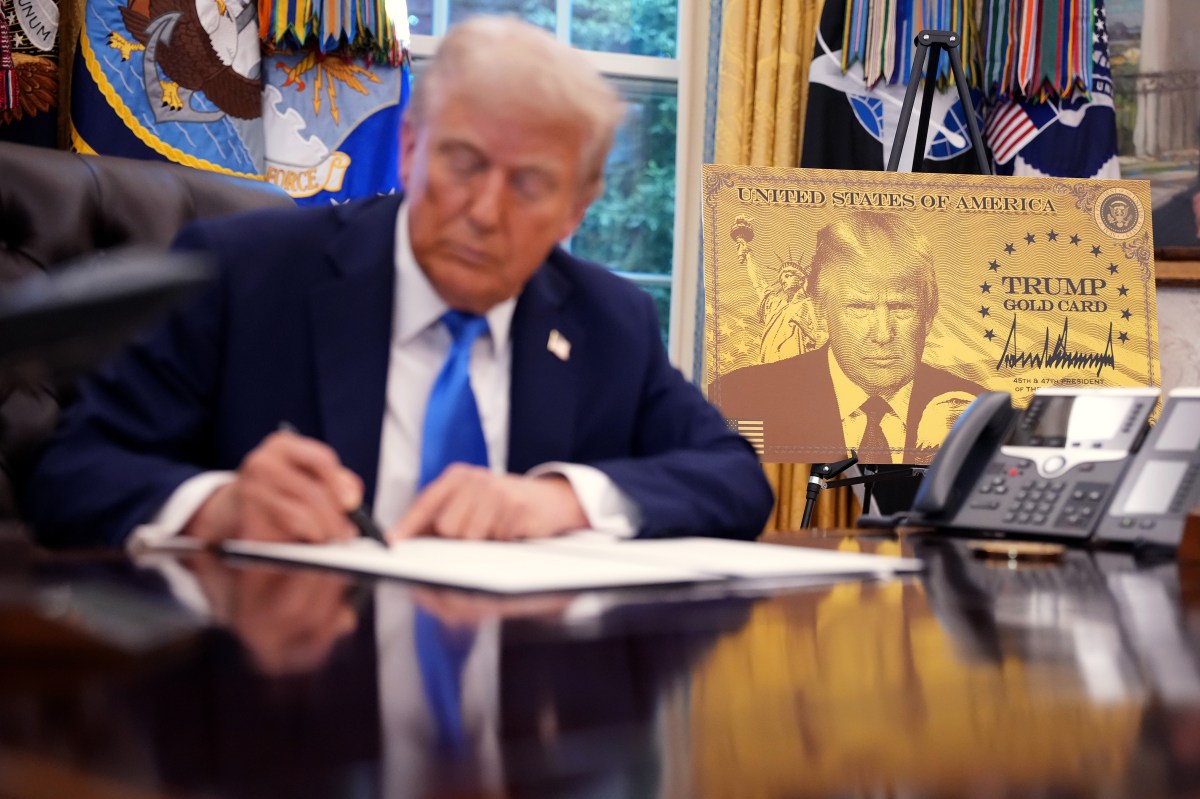
It wasn’t a relaxing weekend for many tech workers. On Friday, at 4:46 p.m. on Friday, President Donald Trump issued an executive proclamation from the Oval Office restricting the H-1B visa program “except for those aliens whose petitions are accompanied or supplemented by a payment of $100,000.” In short, if you’re in the U.S. on this high-skill visa and haven’t paid $100,000 to the government, then adiós. And the business world—particularly the tech sector—panicked.
Major companies—including Amazon, Goldman Sachs, Google, JPMorgan Chase, Meta, Microsoft, and Tesla—warned their H-1B visa employees to remain in the U.S., and, for those currently abroad, to return immediately. An Emirates flight Friday from San Francisco to Dubai was delayed on the tarmac to allow workers to disembark at the last minute upon hearing news of the presidential proclamation. One H-1B employee, an accountant based in Silicon Valley, told Wired that he spent $3,800 to secure a ticket from Beijing to Los Angeles.
The panic and confusion subsided somewhat a day later, when the White House clarified the proclamation and to whom it applied. “Those who already hold H-1B visas and are currently outside of the country right now will NOT be charged $100,000 to re-enter,” White House press secretary Karoline Leavitt posted on X on Saturday. “H-1B visa holders can leave and re-enter the country to the same extent as they normally would; whatever ability they have to do that is not impacted by yesterday’s proclamation.” She added, “This applies only to new visas, not renewals, and not current visa holders.” Leavitt also noted that, “This is NOT an annual fee. It’s a one-time fee that applies only to the petition.” Her announcement came despite Commerce Secretary Howard Lutnick saying in an Oval Office briefing mere seconds after the proclamation was signed that the new fee was “$100,000 a year.” In short, as David Bier—the Cato Institute’s director of immigration studies—told TMD, “What the proclamation actually says is not what they’re planning to enforce, at least that’s what [White House officials] are telling people right now.”
Although the White House has not shied away from taking action against illegal immigrants, including raids on restaurants, grocery stores, construction sites, and battery plants, the changes to the popular visa program marks the Trump administration’s first major move to limit high-skill, permitted immigration.
As a non-paying reader, you are receiving a truncated version of The Morning Dispatch. You can read our full item in the members-only version of TMD.
The H-1B visa program, created under the Immigration Act of 1990, provides a path for employers to hire foreign workers in, per the Labor Department’s online H-1B visa overview, “specialty occupations or as fashion models of distinguished merit and ability” and relocate them to U.S. soil. The overview further states that the visa program’s purpose “is to help employers who cannot otherwise obtain needed business skills and abilities from the U.S. workforce by authorizing the temporary employment of qualified individuals who are not otherwise authorized to work in the United States.”
Cecilia Esterline explained the H-1B visa program for The Dispatch in January:
H-1B visas are typically issued for three years initially, but they can be extended for up to three additional years. However, if the employee has applied for permanent residency via an employment-based green card but is awaiting green card availability due to nationality restrictions, H-1B status can be extended beyond the usual six-year limit.
Every year 85,000 initial H-1B visas are up for grabs, including 20,000 visas reserved for individuals who have earned a master’s degree or higher from a U.S. institution. Because of the limited availability of H-1B visas, recipients are chosen by lottery after being registered by the employer. Lottery registrations regularly exceed annual visa allocations, so registrants are chosen at random to submit a full petition for adjudication.
As Hiroshi Motomura—a law professor at UCLA and co-director of the university’s center for immigration law and policy—told TMD, “The cap is to pay some respect to the people who feel that too many human beings are going to displace them.” But even capping the number of visas doesn’t work as intended. Bloomberg and the Wall Street Journal have reported that large companies have rigged the H-1B lottery by outsourcing and staffing middlemen—sometimes linked through webs of related entities—who file multiple registrations for the same candidate to increase the odds of being selected.
However, with the new fee—increased from the previous fee of between $1,700 and $4,500—Motomura explained, “The president’s essentially saying that the number is too high.”
Employers apply for the visa on the foreign worker’s behalf and would be on the hook for the $100,000 fee, should they choose to hire that H-1B worker. Such a cost might be negligible to tech companies—which are competing over AI researchers with nine-figure salaries—but devastating for less cash-flush industries. Julia Gelatt, an associate director of the Migration Policy Institute’s U.S. immigration policy program, told TMD, “I think a lot of universities and nonprofits in particular, but also for-profit companies around the country, are questioning if they'll be able to use the H-1B program going forward, if it’s going to cost $100,000 per applicant.”
Foreign workers who want to move to the U.S. and whose prospective American-based employers are unwilling to pay $100,000 could try their luck with the tighter O-1 visa program, for “Individuals with Extraordinary Ability or Achievement,” an exclusive visa reserved for geniuses and renowned leaders in their field.
Trump’s proclamation does grant the Department of Homeland Security secretary the authority to issue exemptions when, in his or her discretion, they determine “the hiring of such aliens to be employed as H-1B specialty occupation workers is in the national interest and does not pose a threat to the security or welfare of the United States.” Hani Mansour, an economics professor at the University of Colorado Denver, told TMD that allowing exemptions to be made at the secretary’s discretion “just basically creates a bit of a wild west of who can make the best case” that their employee’s hiring meets that threshold.
H-1B visas have been a MAGA discussion topic before, with much of the online right spending the last days of 2024 fighting about it online. On December 24, Trump ally and right-wing provocateur Laura Loomer asked Tesla and SpaceX CEO Elon Musk, “How is it America First to let Indians replace America’s top talent?” Musk defended the H-1B visa program as a critical channel for U.S. companies to access high-skilled labor, and wrote on X on December 27. “I will go to war on this issue the likes of which you cannot possibly comprehend.” While some influential figures on the right, such as Steve Bannon, called for eliminating the program, Trump sided with Musk at the time. “I’ve been a believer in H-1B,” Trump told the New York Post on the phone on December 28. “I have used it many times. It’s a great program.”
Many international students also rely on the visa to work in the U.S. post-graduation. Gelatt explained that many international students “build their pathway to stay in the United States through the H-1B visa.” Without access to that visa program, she continued, “I would predict that a lot of international student graduates might not have the opportunity to stay in the United States.” If they can’t secure legal status to employment in the U.S., she added, they are more likely to turn to positions “in India or in China, and they're much less likely to spend the rest of their career in the United States.”
On August 7, China’s State Council officially updated its entry-exit policies, adding a new K visa “for young science, technology professionals.” The visa launches October 1, and whereas H-1B is intentionally complicated, the K visa is intended to make it more convenient for tech workers, and applicants “do not require a domestic employer or entity to issue an invitation.” By contrast, along with further restricting H-1B visas, Trump officially unveiled his “Gold Card” visa program last month, which allows individuals to pay $1 million for U.S. residence after an “in-depth background check.” Democrat Sen. Dick Durbin wrote on X that the president was “rolling out the welcome mat for Russian oligarchs and cartel bosses.”
Meanwhile, Stuart Anderson, the National Foundation for American Policy’s executive director and former counselor to the Immigration and Naturalization Services’ commissioner, told TMD, “What’s actually going to happen is this is going to limit opportunities for U.S. workers, because you’re going to see startups have less ability to hire highly skilled individuals” from outside the U.S. As Costa noted, employers sponsoring the visas for foreign workers “pay [them] less than what they would have to pay a similarly situated U.S. worker,” and an effective visa program would more effectively prevent workers from undercutting each other’s wages.
The argument for restricting H-1B visas is that big technology companies shouldn’t be spending billions to train and import foreign employees, but instead, use those resources to train a whole new generation of Americans, who—polling finds—feel particularly pessimistic about the U.S. economy and job market. It’s a similar argument to those made about tariffs, and it stumbles on a similar point: that even if that were to happen, such training would take decades, and companies need workers now.
As Mansour explained, many companies are now trying to determine whether they need to adjust their foreign-worker hiring process and whether their hiring strategy remains viable. “What’s the pool of talent that’s available to them? So it’s just gonna basically inject more uncertainty in an economy that’s already kind of suffering from a lot of uncertainty, and that’s just not going to be good.”
Today’s Must-Read
In the United States, K-12 education is mostly run as a government service. By contrast, higher education is supposed to operate more like a marketplace. In theory, that means competition should drive innovation, keep colleges responsive to students’ needs, and ensure tuition prices reflect the real value of a degree. But in practice, however, the market for higher education is hugely distorted. A few powerful forces—federal subsidies, confusing pricing, and rigid accreditation rules—distort how colleges and universities respond to students. The result is an education sector that costs more than it should, delivers uneven quality, and innovates too little.
Toeing the Company Line
The Biggest Tent
No one can serve two masters.
A Short Route to Chaos
Led by the love child of Augustus Gloop and Veruca Salt.
How ‘Mankeeping’ Entered the Psychological Lexicon
When it comes to men, psychology seems to fumble.
Permissionless Journalism
Standing up to Trump’s attacks on free speech requires conviction, not licensing.
Trump Can’t Fix the Deficit by Attacking the Federal Reserve
The president claims lower interest rates would save us $1 trillion annually. He’s wrong.
L’Etat, C’est Trump
Recent Justice Department scandals show that government lawyers are serving the president, not the Constitution.
The Fall of Affirmative Action | Interview: Justin Driver
‘How do we want to be wrong?’
Worth Your Time
If you believe leaders in the artificial intelligence space, human labor will no longer be competitive with AI by 2027. This is a widespread belief, and though there are debates about the feasibility of that timeline, Derek Thompson takes a different angle in his new piece for The Argument, “You have 18 months.” He’s not worried about a successful robot Substacker rendering him unemployed, but more how a dependence on AI is already eroding how many people think. As Thompson writes, “The problem of the next 18 months isn’t AI disemploying all workers, or students losing competition after competition to nonhuman agents. The problem is whether we will degrade our own capabilities in the presence of new machines. We are so fixated on how technology will outskill us that we miss the many ways that we can deskill ourselves.” Students extensively use AI to write for them, and summarize the work of others, and as he continues, “[t]he decline of writing and reading matters because writing and reading are the twin pillars of deep thinking, according to Cal Newport, a computer science professor and the author of several bestselling books, including Deep Work. The modern economy prizes the sort of symbolic logic and systems thinking for which deep reading and writing are the best practice.”
Presented Without Comment
Reuters: Exclusive: South Korea’s President Lee Says U.S. Investment Demands Would Spark Financial Crisis
Seoul and Washington verbally agreed to a trade deal in July in which the U.S. would lower President Donald Trump's tariffs on South Korean goods in exchange for $350 billion in investment from South Korea, among other measures.
They have yet to put the agreement to paper because of disputes over how the investments would be handled, Lee said.
"Without a currency swap, if we were to withdraw $350 billion in the manner that the U.S. is demanding and to invest this all in cash in the U.S., South Korea would face a situation as it had in the 1997 financial crisis," he said through a translator.
Also Presented Without Comment
Financial Times: U.S. Offers Financial Lifeline to Argentina’s Javier Milei
US Treasury secretary Scott Bessent has said a “large and forceful” intervention is on the table to support Argentina through a bout of severe market volatility, throwing a lifeline to libertarian President Javier Milei. Bessent on Monday said Washington would consider purchases of Argentina’s currency or sovereign debt by a fund controlled by the US Treasury, adding “all options” were on the table…. “We’re sending a message that, if you do the right thing, if you follow good policies, that if you’re aligned with the values of the United States . . . we are willing to provide assistance when things move out of equilibrium,” Bessent said.
Let Us Know
Have any thoughts or questions about today’s newsletter? Drop us a note in the comments!


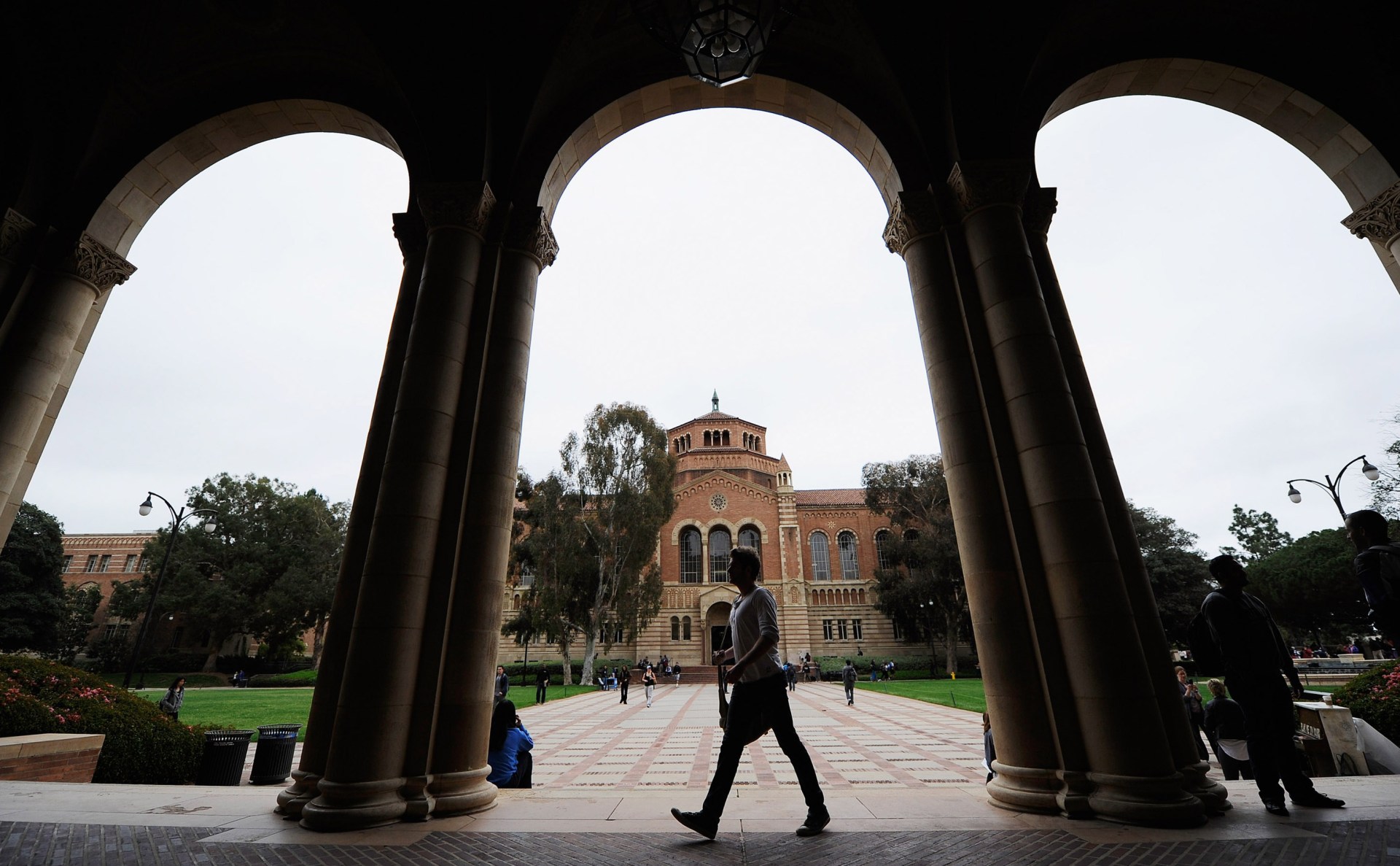
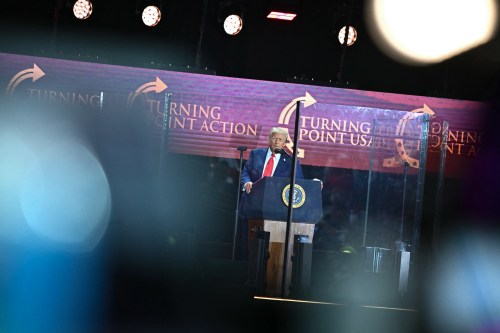
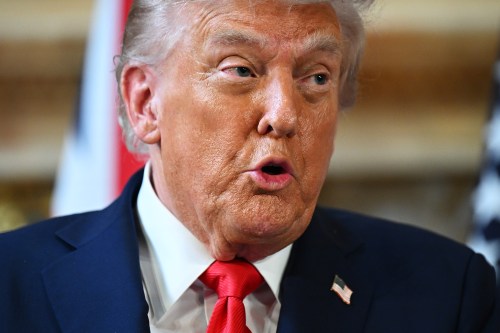

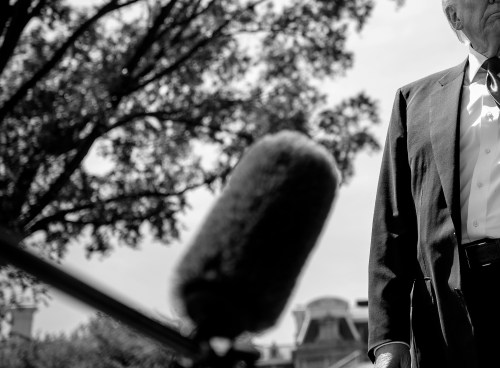
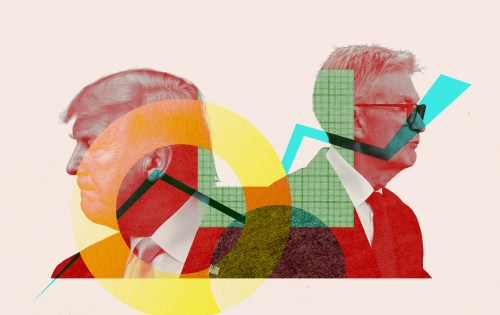
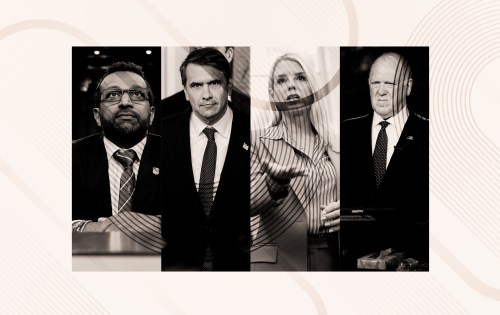
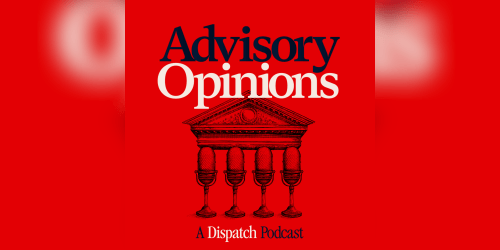
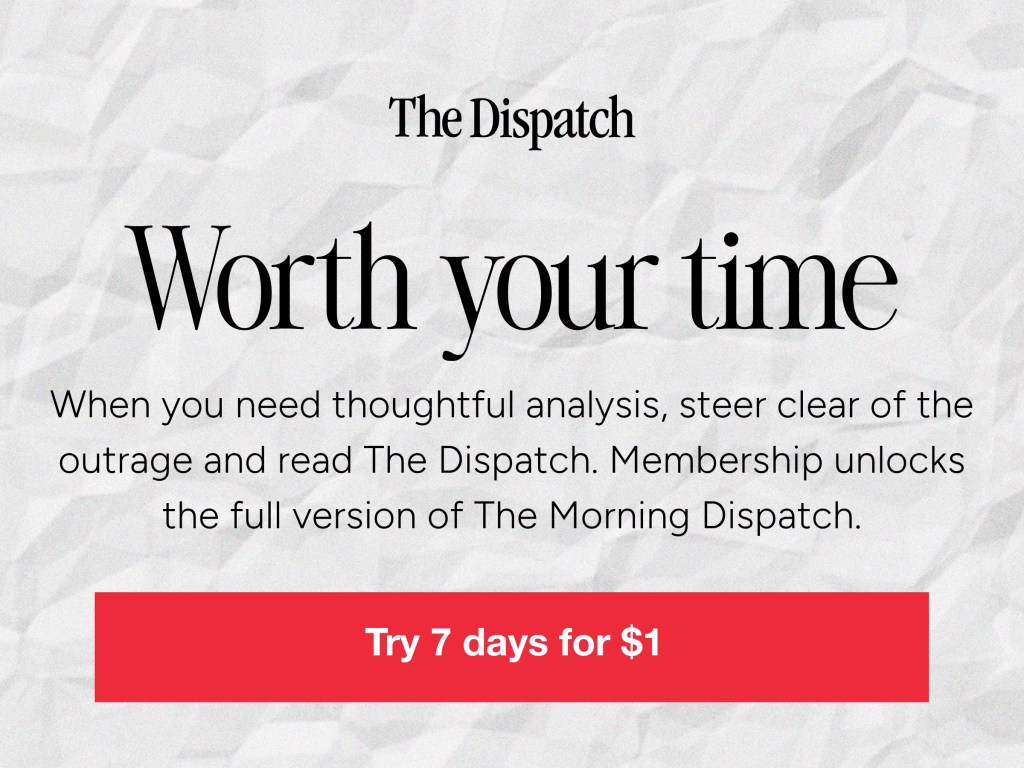



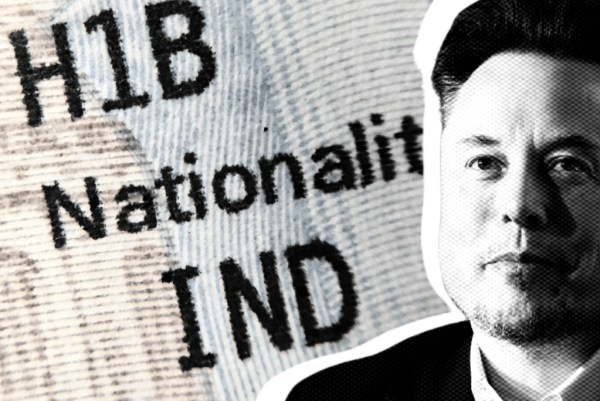

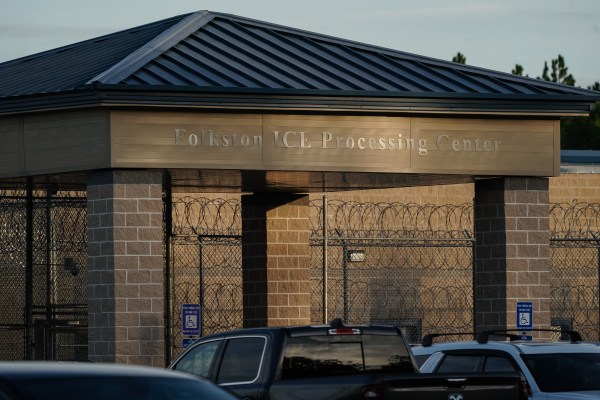
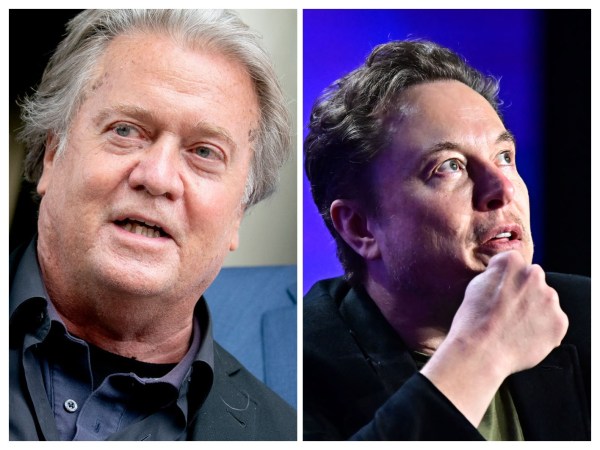

Please note that we at The Dispatch hold ourselves, our work, and our commenters to a higher standard than other places on the internet. We welcome comments that foster genuine debate or discussion—including comments critical of us or our work—but responses that include ad hominem attacks on fellow Dispatch members or are intended to stoke fear and anger may be moderated.
With your membership, you only have the ability to comment on The Morning Dispatch articles. Consider upgrading to join the conversation everywhere.